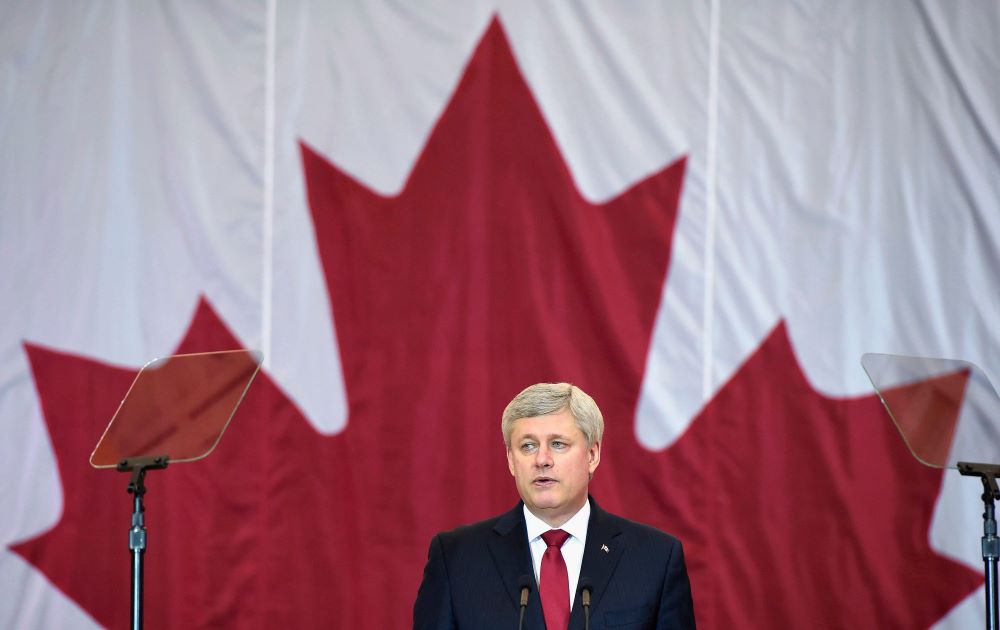After electoral wipeout, Canadian Conservatives united the right — and it worked
4 min read
Some parts of the Tory party won't want to hear it, but the Canadian example shows that uniting the UK right could be their most likely path back to power.
There are some striking similarities between the present-day British Conservatives and their 1993 Canadian counterparts.
For one, there is the leadership of a new prime minister fighting impossible headwinds they inherited. Like Kim Campbell experienced, a brief surge in personal popularity upon replacing an unpopular PM quickly faded away for Rishi Sunak. With two weeks to go until 4 July, polls show his Conservative party is heading for a massive defeat.
Structurally, like Sunak’s UK Conservatives, the Canadian Progressive Conservatives faced a significant splintering, including on the right.
Canada’s Reform Party overtook the PCs in the 1993 election going from a single seat to the third largest party in Parliament. The Canadian Reform Party, an almost entirely regional (Western) entity, attracted a huge number of disaffected Conservative voters. British Reform under Nigel Farage is looking to do the same.
A notable difference is that the Canadian PCs also splintered along a second dimension.
While the Reform Party grew out of regional resentment, the PC party was also weakened when several prominent members formed the Bloc Québécois, a separatist party in Québec. The BQ actually won the second most seats in 1993, ironically becoming Her Majesty’s Loyal Opposition, winning two more seats than right-wing Reform.
The PC destruction was due to losses on two fronts: right-wing support in the West to Reform, and in Canada’s second largest province to the Bloc Québécois. The significant, concentrated support for the new parties in these two parts of the country ushered in a new era of regionalism, bolstered by the winner-take-all, first past the post electoral system that Britain also shares.
As explained by the a UK in a Changing Europe's Zain Mohyuddin, if British Reform’s support is less concentrated, there may be hope that the Conservatives will not be reduced to the occupancy of a smart car.
Yet even if the British Conservatives avoid a defeat on the scale of what the PCs suffered in 1993, what happened next in Canada should be of interest to the UK Tories.

While Canadian Reform surpassed the PCs in 1993, the party struggled to fully supplant the PCs. Like their British counterpart, the PCs had the broader electoral base both geographically and ideologically. Try as it did, Canadian Reform was ultimately unsuccessful at becoming a national party, even after morphing into the Canadian Alliance in an attempt to woo voters in other parts of the country.
The existence of the Bloc Québécois in Québec did not help – the prominence of that party created an insurmountable challenge to recovering the support the PCs had enjoyed prior to 1993, based upon an (ultimately fragile) coalition of support in the West and Québec.
Eventually, after seeing the Canadian Liberal Party win victories in 1993, 1997, and 2000, the Canadian right joined forces. The PCs and Canadian Alliance parties merged in 2003, became the Official Opposition in 2004, and won back in power in 2006 as the new Conservative Party of Canada. The merger was well-sealed by the centralizing leadership style of Stephen Harper and a clear dedication to winning power.
Although today it is hard to imagine the British Conservatives following suit, the Canadian case shows that mergers can lead to successful reincarnations.
For a long time, moderate right PCs were too stubborn to give up on their party completely, thwarting the Reform/Canadian Alliance hopes of success. Only when the parties recognized the stalemate and focused on uniting to pursue a winning electoral strategy did they once again have a chance to form the government.
For Canadian voters, the persistence of ideology and partisanship combined with frustration at seeing the other side win repeatedly meant they were ready to accept a new Conservative party. In the long-term, as Brexit and unpopular Conservative prime ministers fade further into memory, successive electoral losses will likely push the British right to reconcile.
Matthew Lebo and Laura Stephenson are professors of political science at the University of Western Ontario.
